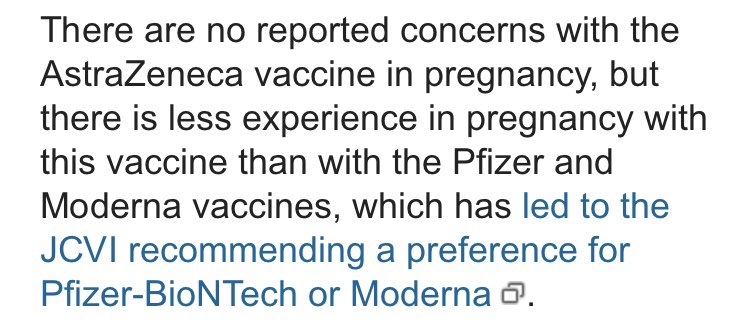
@toadmeister Morning Toby! I’m the reproductive immunologist that is quoted in that Sunday Times article, here to provide a bit of context... 1/
@toadmeister The first thing to say is that Yellow Card is very good at detecting serious side effects that don’t usually happen in the absence of vaccination. That’s what it’s designed for and it’s one of the ways we were able to pick up the rare clotting side effect associated with AZ. 2/
@toadmeister What Yellow Card is not so good at is detecting a change in the rate of non-serious events that sometimes happen anyway. People experiencing a heavy period post-vaccine is a good example of such an event. 3/
@toadmeister Partly this is because not everyone will report a heavy period to Yellow Card. That’s why I encourage anyone who notices a change to their period post-vaccination to report it, so that it’s on the record. You can report here... 4/
coronavirus-yellowcard.mhra.gov.uk
coronavirus-yellowcard.mhra.gov.uk
@toadmeister But even if everyone reports, Yellow Card is still not really set up to answer the question we want to know the answer to: Am I more likely to get (eg.) a heavy period the month of my vaccine compared to any other month? 5/
@toadmeister That’s partly because we don’t have very good data on how common it is for someone who has regular periods to have an unusual period one month. And that’s partly because this is an area that is understudied. 6/
@toadmeister We can design a study to try and work this out (indeed, I have!) but in the interim, one question a lot of people want to know the answer to is: Assuming that some people really do experience a change in their periods post-vaccine, is this something we should be worried about? 7/
@toadmeister The first thing to say to this is that almost all the reports are of short-term (one cycle, sometimes two) changes. So if you do get a funny period post-vaccine, it’s unlikely to bother you for more than a month. 8/
@toadmeister The second thing to say is that, we do know that some other vaccines also have short-term effects on the menstrual cycle, for example HPV and flu. We also know that these vaccines don’t harm fertility (indeed HPV improves it!). 9/
@toadmeister You can read more about this here... 10/
https://twitter.com/VikiLovesFACS/status/1384916241530380294?s=20
@toadmeister For people who worry that a change to their period means there may be a change to their fertility, hopefully knowing about these other vaccines will set their mind at rest. 11/
@toadmeister I would also encourage people who are worried about this to look at some of the reassuring data we have around COVID19 vaccines and fertility.... 12/
@toadmeister Vaccines didn’t reduce fertility in the clinical trials, or in studies of IVF patients and by March, 4804 post-vax pregnancies had been reported to the CDC. Details here... 13/
drive.google.com/file/d/1_wHIYX…
drive.google.com/file/d/1_wHIYX…
@toadmeister I hope that sets the Yellow Card reports on changes to people's periods following vaccination in context for you. 14/14
• • •
Missing some Tweet in this thread? You can try to
force a refresh








